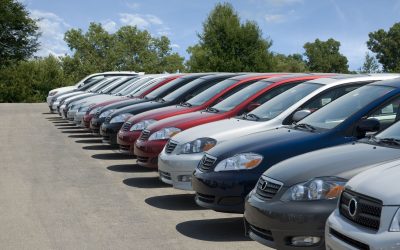We take it for granted when we push on the brake pedal of our vehicles, the vehicle should slow and then stop. But have we ever asked ourselves exactly how this happens? How does the action of depressing a small rubber pad cause a several thousand pound moving piece of fiberglass, steel and plastic to slow and ultimately stop? The magic of brakes in Franklin is in the fluid.
When we apply the brake pedal, our vehicles send the force of our foot to the brakes in Franklin with a brake fluid, and it does it with a much large force than we could ever apply. Our vehicles accomplish this transmission of force in one of two ways: mechanical force and hydraulic force.
In a hydraulic system, force that is generated at one point is transferred to another location using a fluid that cannot be compressed. Most always this fluid is oil. The great thing about hydraulics is that the force can easily be multiplied. By varying the sizes of the cylinders– the cylinder holding the oil in which you are pushing out when you step on the brake (the master cylinder) to the cylinders connected to the pistons (the slave cylinders) which apply the brakes– we can take a small amount of energy and transmit it to a large amount. And the multiplication factor is constant. If a slave cylinder is ten times larger than the master cylinder, then the force coming out of the slave cylinder is 10 times greater than the master cylinder. However, the catch to this is if you want to slave cylinder to depress 1 inch, the master cylinder will have to be depressed 10 inches.
In a simple brakes in Franklin system, if there is a small leak in the line holding the brake fluid, eventually there won’t be enough oil in the line to fill the cylinder and the our brakes won’t work. This is especially true if the oil leak is major. As soon as you step on the brakes in Franklin, all of the liquid will squeeze out, and the whole braking system will fail.
Modern cars come equipped with a master cylinder to cope with these potential problems, but it is always a good idea to have your vehicle regularly inspected by a mechanic to make sure there are no cracks or leaks in your brake lines.



